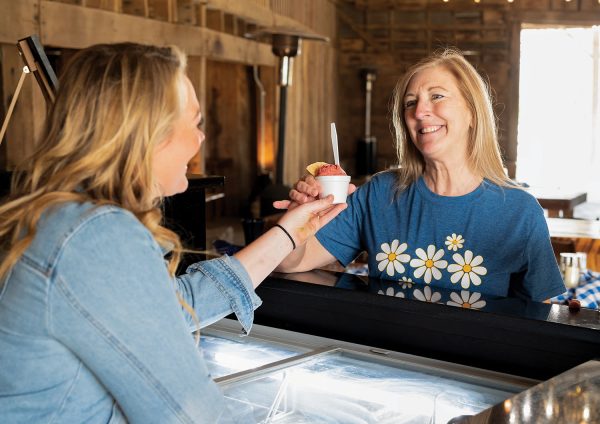COLUMN: Treasure memories, not souvenirs
April 5, 2011
Something to write with is all I really need. I ransack the hotel room in Beijing (my current location) for a writing utensil, maybe a complementary pen, but I find nothing, and I have to borrow one from the front desk.
I can’t find any paper either, so I write on the back of a China Airlines sick bag, which I’ve been using as a bookmark. I meant to add it to my growing collection of sick bags from different airlines, but I suppose I am giving it too much intrinsic value. It’s just paper, and so are the rest of them.
I am also collecting sand from every country we visit. Spending a quarter of our time in each port searching for a place where I can acquire sand makes me wonder whether I should reorganize my priorities.
Why am I attaching some sort of intrinsic value to things like sand and barf bags when the real value lies in something that can only be recounted in stories?
As travelers, we search for ways to bottle sensations, memories and emotions in some concrete form, as if the purchase of a souvenir marble elephant in India will help you remember the way both fragrant and polluted air blew in your face during a rickshaw ride through the chaotic streets.
A handmade blanket from an orphanage in Cambodia is no doubt a worthy investment, but it is nothing compared to the time you spend with a child who has never known a mother or father or even siblings. I realized this when a small boy ran up to me, clung to my waist and proclaimed me to be his mother in thirty seconds. A mother probably would have been more precious to him than any present I could have given him.
Desperate last-minute shopping for souvenirs in the Silk Market in Beijing would be better spent having a conversation with a local. The experience would be yours and yours only, while whatever you buy is most likely available somewhere else.
If I have learned anything at all, I have learned that stuff is nothing more than stuff. Shopping is everywhere and unavoidable, even in the poorest parts of the world.
It’s up to you whether you want to encase your world in plastic and nylon, or take stock of all you really need to be a traveler rather than a tourist-shopper: air, clothing, food, water, a little money, an open mind and the humbleness of being a visitor in someone else’s land. Your experience will be all the richer.
For me, it’s time to forget the sand and the souvenirs and to start my real voyage.












![Students cheer for Senator at Large Jaden Marshall after being announced as the Intercultural Student Engagement Center Senator for the 24th Senate on Wednesday, April 17 in the Senate Chamber in DSU. Ive done everything in my power, Ive said it 100 times, to be for the students, Marshall said. So, not only to win, but to hear that reaction for me by the other students is just something that shows people actually care about me [and] really support me.](https://wkuherald.com/wp-content/uploads/2024/04/jadenmarshall-1200x844.jpg)




![Megan Inman of Tennessee cries after embracing Drag performer and transgender advocate Jasmine St. James at the 9th Annual WKU Housing and Residence Life Drag Show at Knicely Conference Center on April 4, 2024. “[The community] was so warm and welcoming when I came out, if it wasn’t for the queens I wouldn’t be here,” Inman said.](https://wkuherald.com/wp-content/uploads/2024/04/smith_von_drag_3-600x419.jpg)






